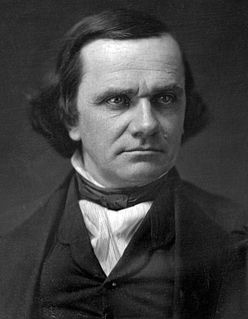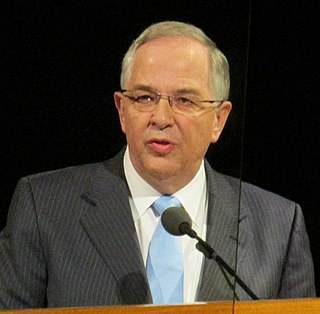A Quote by Sergey Brin
We have tried to define precisely what it means to be a force for good - always do the right, ethical thing. Ultimately, 'Don't be evil' seems the easiest way to summarize it.
Related Quotes
When one has once accepted and absorbed Evil, it no longer demands the unfitness of the means. The ulterior motives with which youabsorb and assimilate Evil are not your own but those of Evil.... Evil is whatever distracts. Evil knows of the Good, but Good does not know of Evil. Knowledge of oneself is something only Evil has. One means that Evil has is the dialogue.... One cannot pay Evil in installments--and one always keeps on trying to.
I deny the right of Congress to force a slaveholding State upon an unwilling people. I deny their right to force a free State upon an unwilling people. I deny their right to force a good thing upon a people who are unwilling to receive it. The great principle is the right of every community to judge and decide for itself, whether a thing is right or wrong, whether it would be good or evil for them to adopt it; and the right of free action, the right of free thought, the right of free judgment upon the question is dearer to every true American than any other under a free government.
We can work, study, laugh and have fun, dance, sing, and enjoy many different experiences. These are a wonderful part of life, but they are not central to why we are here. The opportunity to choose good over evil is precisely why we are here. Not one of us would say, "I want to choose evil." We all want to choose the right. However, the choice of good over evil is not always easy, because evil frequently lurks behind smiling eyes.
God is the creator of all things, right? He is the force that dictates the laws of the universe, and is therefore the ultimate source of ethics. He is absolute morality... We claim to be doing good. But the Lord Ruler - as God - defines what is good. So by opposing him we're actually evil. But since he's doing the wrong thing, does evil actually count as good in this case?
There's always the same amount of good luck and bad luck in the world. If one person doesn't get the bad luck, somebody else will have to get it in their place. There's always the same amount of good and evil, too. We can't eradicate evil, we can only evict it, force it to move across town. And when evil moves, some good always goes with it. But we can never alter the ratio of good to evil. All we can do is keep things stirred up so neither good nor evil solidifies. That's when things get scary. Life is like a stew, you have to stir it frequently, or all the scum rises to the top.
When anything is in the presence of evil, but is not as yet evil, the presence of good arouses the desire of good in that thing; but the presence of evil, which makes a thing evil, takes away the desire and friendship of the good; for that which was once both good and evil has now become evil only, and the good has no friendship with evil.
Here is my challenge. Name one ethical statement made, or one ethical action performed, by a believer that could not have been uttered or done by a nonbeliever. And here is my second challenge. Can any reader think of a wicked statement made, or an evil action performed, precisely because of religious faith? The second question is easy to answer, is it not? The first - I have been asking it for some time - awaits a convincing reply. By what right, then, do the faithful assume this irritating mantle of righteousness? They have as much to apologize for as to explain.
Evil denotes the lack of good. Not every absence of good is an evil, for absence may be taken either in a purely negative or in aprivative sense. Mere negation does not display the character of evil, otherwise nonexistents would be evil and moreover, a thing would be evil for not possessing the goodness of something else, which would mean that man is bad for not having the strength of a lion or the speed of a wild goat. But what is evil is privation; in this sense blindness means the privation of sight.
We will never have peace in the world until men everywhere recognize that ends are not cut off from means, because the means represent the ideal in the making, and the end in process, and ultimately you can't reach good ends through evil means, because the means represent the seed and the end represents the tree.


































